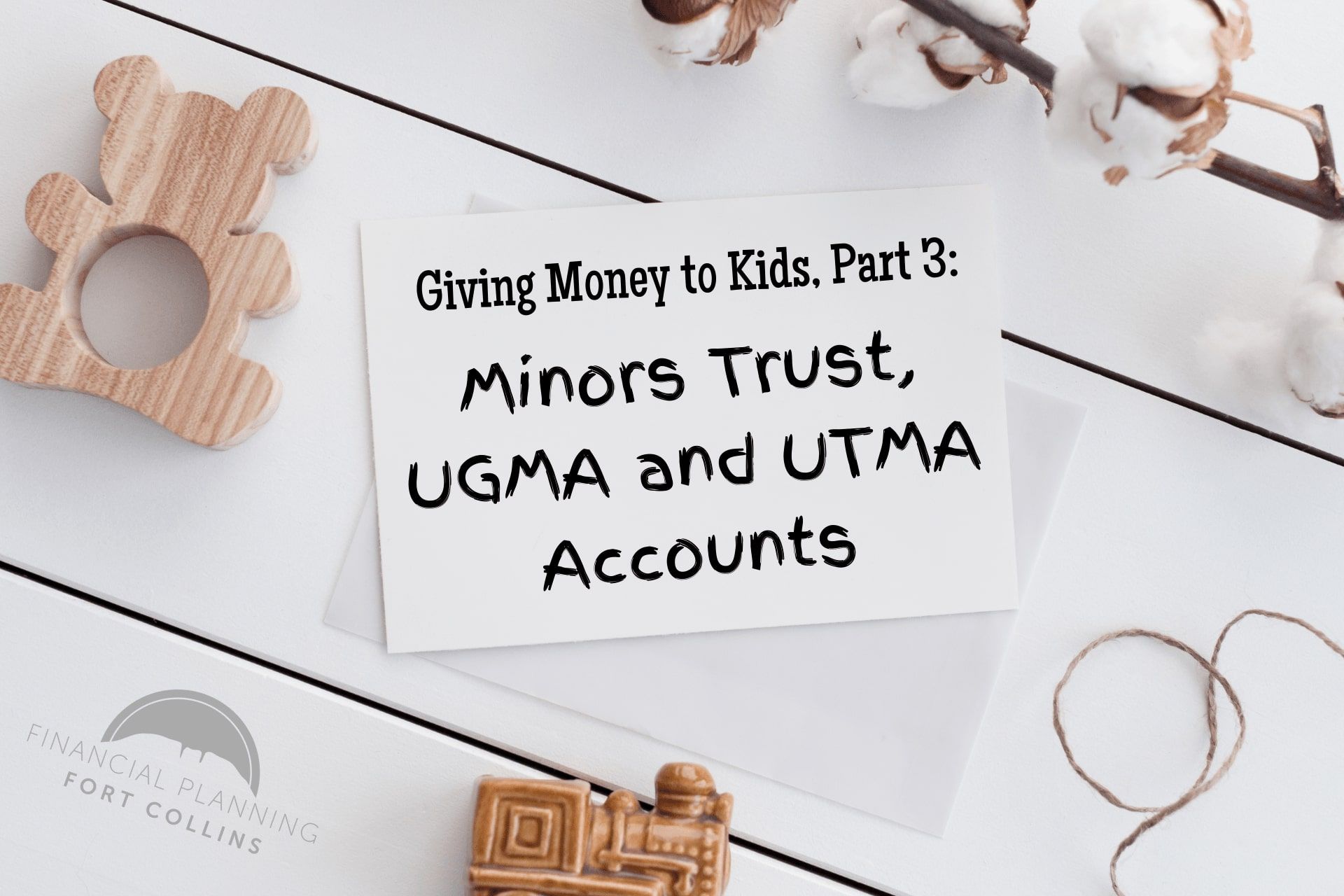
Perhaps you want to provide a financial head start to your kids once they become adults — maybe so each can start a business or buy a home. Maybe you’d even like the recipient to use the money for college or other education expenses … but you aren’t sure if that’s the path your kids will take. To be candid, it’s really difficult to know exactly what will happen five, 10, or 15 years from now. The only thing you can do is consider all your options and make an appropriate planning decision with that information.
Other types of giving
Here is where non-education-specific gifting comes into play. In reality, only a couple of practical options exist when it comes to just flat out giving money to a minor:
1. An operation of law, called either a Uniform Transfers to Minors Act (UTMA) account or a Uniform Gifts to Minors Act (UGMA) account.
2. Placing the gift in trust for the minor, with the most common being the Section 2503(c) trust, aka a “Minors trust.”
The key distinction between the two is that the former — UGMA and UTMA accounts — are very simple and virtually cost-free to establish. The later — a Minors trust — will likely require the work of an attorney.
Minors trust
Starting with the later, a Section 2503(c) trust gets its name from the section of the Internal Revenue Code that makes its establishment an option. The purpose of a Section 2503(c) trust is to give money to a minor that he or she may not use immediately but have the gift still qualify for the annual gift tax exclusion amount, which is $15,000 for 2019. Normally, only amounts given in “the present interest” qualify for the annual gift tax exclusion.
Typically, the trust will offer a period of time after the minor turns 21 for the beneficiary to remove principal from the trust. After that period of time, if property remains in the trust, stipulations in the trust document dictate how to remove property in the future. However, after this period of time, gifts to the trust no longer qualify for the annual gift tax exclusion amount.
UGMA and UTMA
As for UTMA and UGMA accounts, all states except for South Carolina recognize an UTMA account as a form of property ownership. This is important because an UTMA account can hold virtually any asset type, including real estate. An UGMA account, on the other hand, can only hold bank deposits, securities — think stocks, bonds, mutual funds — and insurance policies.
Gifts to UTMA and UGMA accounts also qualify for the annual gift tax exclusion amount. With both account types, state law dictates the age at which a minor becomes an adult; in most cases, either 18 or 21 (in Colorado, it’s 21). Usually, the law of the state in which you establish the UTMA or UGMA or where the minor lives applies. Taxation of UTMA and UGMA accounts falls under the “kiddie tax” rules. In 2019, the first $1,100 of unearned income is tax-free to a child. The next $1,100 falls into the child’s tax rate. Then, anything above $2,200 incurs the same tax as trusts and estates. While this provides some tax relief, managing for tax issues is important if the account has the assets to possibly generate more than $2,200 in income.
Which is the best option?
For all of the arrangements: a caveat.
The education savings vehicles and strategies discussed in earlier blogs allow a beneficiary or intended recipient change. However, gifts to minors under the circumstances we’ve covered here are irrevocable. With the Section 2503(c) trust, the asset belongs to the trust and, eventually, the minor. With an UTMA or UGMA account, the asset immediately belongs to the minor with an adult custodian until the child reaches the age of majority. However, in all cases, the custodian can use money prior to the age of majority as long as it is for the benefit of the minor. This can be for education — or it can be for braces or a trip to summer camp. Therein lies the tradeoff: rigidity and tax breaks or flexibility and few tax benefits.
